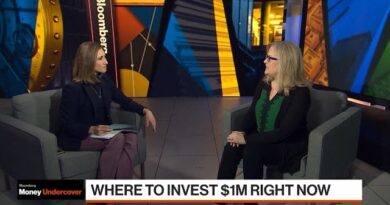
TECH TUESDAY: Gatekeepers of the Securities Markets

TECH TUESDAY is a weekly content series covering all aspects of capital markets technology. TECH TUESDAY is produced in collaboration with Nasdaq.
To what extent is a broker-dealer responsible for the actions of its clients?
This is a perennial question for the compliance and trade surveillance function.
Is the firm an agent and cannot know the minds of its customers, and therefore is not responsible for the intentions and context of trading initiated by customers?
Or, is the firm the “gatekeeper” to financial markets and, therefore, responsible for the bona fides and impact of trading that it facilitates on behalf of customers in those markets?
Ian Hawkins, Nasdaq
Over the last five to ten years, there has been a strong shift in the courts toward the broker-dealer as gatekeeper. A recent Order issued by a U.S. Federal Court Judge in Harrington Global Opportunity Fund Ltd. v. CIBC World Markets, Inc. et al. doubled down on the requirement for firms to exercise discretion in accepting and facilitating orders on behalf of customers.
The case itself involves allegations of spoofing, a form of market manipulation where traders place orders they have no intention to execute, and naked short selling, the practice of selling shares that an investor doesn’t own and hasn’t borrowed. The defendants argued that trading was initiated and carried out by their customers and that they could not be held responsible for facilitating those trading instructions and any subsequent impact of those orders on the market.
However, in a rebuttal, the Judge in the case stated that broker-dealers have a “continuing responsibility to ensure that their customer’s order flow… is in compliance with all applicable rules, regulations and laws and detect and prevent manipulative or fraudulent trading … under the supervision and control of the firm.”
The Court viewed brokers as gatekeepers of the markets, who have an obligation to monitor, surveil, and prevent their customers from engaging in fraudulent trading conduct. It further stated that where a broker-dealer fails to monitor its customers’ trading and is “reckless in not knowing that the trades being executed at their customers’ direction were manipulative,” the broker can be held “primarily” liable.
The Court’s statement on the matter seems unequivocal.
It is also consistent with preceding regulatory actions that have taken a similar approach. For example, in a recent paper, we highlighted the circumstances of FINRA’s action, case ID 2017054491001, against a U.S.-based investment firm. The important events of that case were:
- The firm provided electronic trading customers with access to a trading platform that routed their orders to other broker-dealers for execution.
- The firm believed that the obligation to review this trading for potentially manipulative activities rested solely with the executing broker-dealers.
- FINRA argued that “the firm mistakenly believed that it was not required to review this trading for any type of potentially manipulative activity.”
- FINRA argued that due to this lack of scrutiny, the firm failed to detect potential layering activity by an institutional electronic trading customer across various exchanges.
- The firm accepted and consented to a FINRA order (without admitting or denying the findings).
Considering these and similar regulatory actions, it is crucial that a broker-dealer’s risk assessment includes a review of all channels by which they, directly or indirectly, are involved in the transmission of customer orders to a trading venue – and that they have controls and surveillance in place to monitor that flow and identify potentially abusive trading.
Ian Hawkins is Head of Nasdaq Trade Surveillance Advisory Services.
Creating tomorrow’s markets today. Find out more about Nasdaq’s offerings to drive your business forward here.



